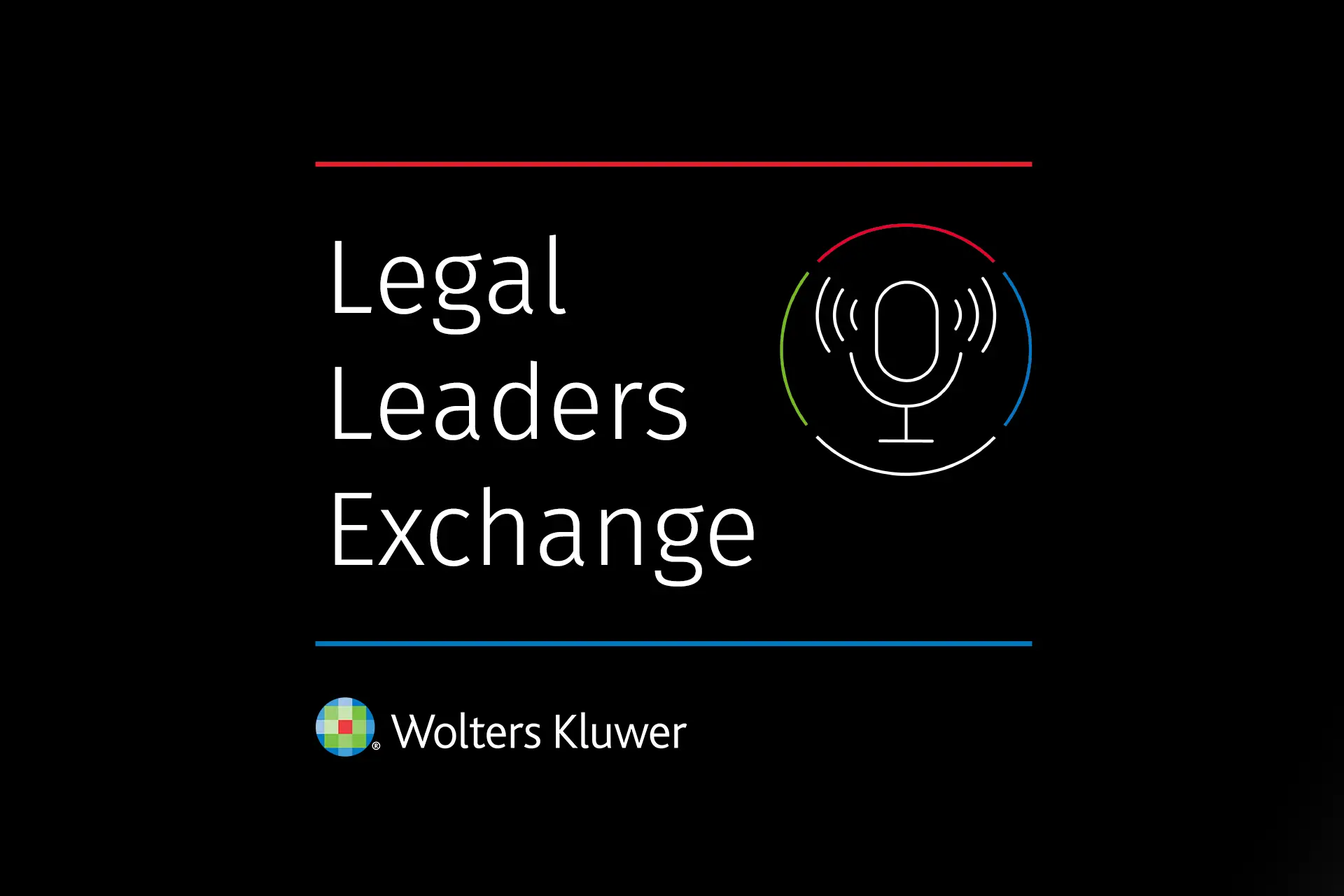Talking about the digital economy, Ana Paula Dourado gets quite enthusiastic. As confusing the times may be for the international tax world, there are plenty of remarkable developments to cover in ‘her’ Intertax Magazine. She highlights a few.
LegalJuly 01, 2019
We Are Living In Revolutionary Times
The current ‘connecting elements’ – source (including the permanent establishment) and residence – do not apply to the new business models emerging. These elements are related to a physical presence and/or geographical borders and will not be compatible with new business models based on artificial intelligence
Ana Paula Dourado used to travel to far off countries as Mozambique, East Timor and Cape Verdi as advisor for the IMF to propose new tax legislation. She was a delegate at the OECD, at the WP on exchange of information and assistance in tax collection, and at the EU for the Portuguese Ministry of Finance, negotiating EU tax Directives on behalf of her motherland. Nowadays, with plenty years of experience in the field under her belt, she works full time at the University of Lisbon. Apart from being a tax law professor she has another full time job ‘on the side’: editor in chief of Intertax. The Wolters Kluwer journal is issued monthly in print and online, twice a year bimonthly. Some hot topics are handled in special issues, such as MLI (issue 1, 2018), Digital and Taxes (double issue 6/7, 2018; issue 2, 2019). Currently there is one special issue about to be published, on international tax arbitration; and two others in preparation: one on transfer pricing, and the other on the regulatory role of taxes.
Along the years there have been many reasons to be enthusiastic about taxes, says Dourado. ‘I was lucky enough to start in interesting times because of the EU integration and all the challenges resulting from globalization. More recently there has been a shift into multilateralism, coordination and the digital revolution,’ says Dourado. ‘There are a lot of factors creating huge tensions: multilateralism versus nationalism, international tax transparency versus harmful tax competition, to name but a few. All of these conflicting forces make it very difficult to see how the international tax system will develop. We are living in almost revolutionary times when you think of the digital economy.’
Some digital business models would justify specific taxes, suggests Dourado. ‘Think of business models for the processing of data or those related to AI-mechanisms.’
Most AI-applications as we know them currently exist within the framework of a company. A lawyer would use AI-solutions in a due diligence project, for example. What kind of tax subjects does Dourado have in mind? ‘There are increasingly autonomous AI– applications that will operate without any control of humans in the near future. These autonomous applications, discovering and processing knowledge and decisions by algorithms, are lead from multiple servers. You can’t really identify where the main place of business is located. Without splitting the pie by coordination and cooperation between national jurisdictions it will be difficult to tax these new entities.’
These unilateral actions are not an optimal solution and should not last, according to Dourado. ‘The solution has to be internationally coordinated; multilaterally ideally, because otherwise the disruption of the tax system that is already taking place will become worse.’
That brings us to another much-debated topic in international tax law: transfer pricing. Coordination between states where the outcome of the current rules is considered unfair will ensure a redistribution of tax income. Dourado currently is preparing a special Intertax-issue on the subject. ‘Rethinking transfer pricing is crucial under the current international tax system taking into account the new digitized economy. How transfer pricing can still be valid is a subject of discussion, mainly due to the fact that the digitized economy relates to intangibles and intangibles are very difficult to value. This is a very relevant topic for the business sector and the states alike.’
When we are talking about arbitration in taxes we are talking about international conflicts between the residence and source state. ‘The fact that there are so many new anti-avoidance or anti-tax planning measures in unilateral legislation and tax treaties alike, will ultimately lead to double taxation,’ forecasts Dourado. ‘Arbitration showed up as a very crucial mechanism and fast solution of this problem. Imagine there is this rule limiting the deduction of interest in the source state and the residence state will still tax that income. Or what if the tax authority in the source states corrects the value of royalties related to intangibles but the residence state does not do the same? Double taxation takes place. In that case, representatives of two jurisdictions can seek a settlement of their tax claims in arbitration. Which tax claim will belong to which jurisdiction and does this jurisdiction have to give up some amounts in favour of the other? ‘A double special issue on this subject is about to be published,’ says Dourado.
Currently there is quite a bit of abuse of legislative power, says Dourado. ‘There are many new taxes that are enacted in national jurisdictions and they cannot really be explained except for the fact that states miss revenue because of globalization and tax competition, so they try to tax immovable factors. They try to tax what they can tax. There are many new very specific taxes that fall outside of the national tax system as we usually understand it, dividing the national system in the typical trilogy of income, property and consumer taxes. This trilogy seems to be not enough any longer.’
She gives an example. ‘It is very common to have environmental taxes and taxes on regulatory institutions such as telecommunications or the banking sector. What you see very often today is that new legislation will justify itself with a specific target – i.e. protection of the environment, or financial stability – but in the end the revenue collected is not really applied for the announced purpose. If we talk about environmental taxes, for example, the tax revenues are often not used to promote alternative or less polluting activities. There is for sure abuse in many jurisdictions of legislative power by setting up these taxes,’ concludes Dourado.
In short: it is a tumultuous time for international tax law. Dourado even thinks ‘there is some denial by the tax community and policy makers of the scope of the digital revolution. Lawyers in general have a very conservative attitude. There’s a need to really think about the future and be able to foresee it with some anticipation.’
Along the years there have been many reasons to be enthusiastic about taxes, says Dourado. ‘I was lucky enough to start in interesting times because of the EU integration and all the challenges resulting from globalization. More recently there has been a shift into multilateralism, coordination and the digital revolution,’ says Dourado. ‘There are a lot of factors creating huge tensions: multilateralism versus nationalism, international tax transparency versus harmful tax competition, to name but a few. All of these conflicting forces make it very difficult to see how the international tax system will develop. We are living in almost revolutionary times when you think of the digital economy.’
Robots require new legislation
The rapid technological development and digitalization of the economy requires a complete shift in rethinking the connecting elements that are the founding pillars of the international taxation system, explains Dourado. ‘The current ‘connecting elements’ – source (including the permanent establishment) and residence – do not apply to the new business models emerging. These elements are related to a physical presence and/or geographical borders and will not be compatible with new business models based on artificial intelligence.’Some digital business models would justify specific taxes, suggests Dourado. ‘Think of business models for the processing of data or those related to AI-mechanisms.’
Most AI-applications as we know them currently exist within the framework of a company. A lawyer would use AI-solutions in a due diligence project, for example. What kind of tax subjects does Dourado have in mind? ‘There are increasingly autonomous AI– applications that will operate without any control of humans in the near future. These autonomous applications, discovering and processing knowledge and decisions by algorithms, are lead from multiple servers. You can’t really identify where the main place of business is located. Without splitting the pie by coordination and cooperation between national jurisdictions it will be difficult to tax these new entities.’
Splitting the pie
‘In my opinion it is inevitable that we will move towards a profit splitting system, says Dourado. She explains: ‘States that are not satisfied with the institutional solutions offered by the OECD and EU are moving unilaterally today to prevent loss of tax. India for example, has attached taxation rights to the market place for income resulting from the sale of personal data to companies that use this information to target consumers with personalized ads. Kuwait and Saudi Arabia have adopted the “virtual service PE approach” and Israel the “significant digital presence approach.” Italy, Spain and France are moving towards that direction as well.These unilateral actions are not an optimal solution and should not last, according to Dourado. ‘The solution has to be internationally coordinated; multilaterally ideally, because otherwise the disruption of the tax system that is already taking place will become worse.’
That brings us to another much-debated topic in international tax law: transfer pricing. Coordination between states where the outcome of the current rules is considered unfair will ensure a redistribution of tax income. Dourado currently is preparing a special Intertax-issue on the subject. ‘Rethinking transfer pricing is crucial under the current international tax system taking into account the new digitized economy. How transfer pricing can still be valid is a subject of discussion, mainly due to the fact that the digitized economy relates to intangibles and intangibles are very difficult to value. This is a very relevant topic for the business sector and the states alike.’
Arbitration and Regulation
Partly as a result of the above, Dourado expects a lot of increase in arbitration as a form of tax dispute resolution. ‘Arbitration in international tax law used to be a tool that was scarcely used,’ says Dourado, ‘even if the European Union and OECD enacted special regimes to this effect. Normally tax authorities avoid getting into arbitration. They try to solve disputes between the two of them so that they still can have some control over the result. But now that the OECD’s BEPS-Multilateral Convention entered into force in July 2018 (resulting from the Base Erosion and Profit Shift project, aimed at tackling multinationals’ aggressive tax planning), it will be used quite often.’When we are talking about arbitration in taxes we are talking about international conflicts between the residence and source state. ‘The fact that there are so many new anti-avoidance or anti-tax planning measures in unilateral legislation and tax treaties alike, will ultimately lead to double taxation,’ forecasts Dourado. ‘Arbitration showed up as a very crucial mechanism and fast solution of this problem. Imagine there is this rule limiting the deduction of interest in the source state and the residence state will still tax that income. Or what if the tax authority in the source states corrects the value of royalties related to intangibles but the residence state does not do the same? Double taxation takes place. In that case, representatives of two jurisdictions can seek a settlement of their tax claims in arbitration. Which tax claim will belong to which jurisdiction and does this jurisdiction have to give up some amounts in favour of the other? ‘A double special issue on this subject is about to be published,’ says Dourado.
Regulation
Another remedy to tackle the high mobility and tax planning of multinationals are sectoral taxes. ‘As mentioned, the fact that multinationals are so mobile, especially tech companies because they rely on intangibles, implies that states are having huge difficulties in taxing them,’ says Dourado. As a result, a lot of sectoral taxes are created so states can still have their piece of the cake. ‘Besides, when one state enacts an environmental tax, others will follow,’ predicts Dourado. ‘National taxes tend to become similar very soon. Without coordination that is not always a good thing, due to inconsistent behavior. They want the same tax but they compete with one another for investments, which in turn leads to a decrease in taxes.’Currently there is quite a bit of abuse of legislative power, says Dourado. ‘There are many new taxes that are enacted in national jurisdictions and they cannot really be explained except for the fact that states miss revenue because of globalization and tax competition, so they try to tax immovable factors. They try to tax what they can tax. There are many new very specific taxes that fall outside of the national tax system as we usually understand it, dividing the national system in the typical trilogy of income, property and consumer taxes. This trilogy seems to be not enough any longer.’
She gives an example. ‘It is very common to have environmental taxes and taxes on regulatory institutions such as telecommunications or the banking sector. What you see very often today is that new legislation will justify itself with a specific target – i.e. protection of the environment, or financial stability – but in the end the revenue collected is not really applied for the announced purpose. If we talk about environmental taxes, for example, the tax revenues are often not used to promote alternative or less polluting activities. There is for sure abuse in many jurisdictions of legislative power by setting up these taxes,’ concludes Dourado.
In short: it is a tumultuous time for international tax law. Dourado even thinks ‘there is some denial by the tax community and policy makers of the scope of the digital revolution. Lawyers in general have a very conservative attitude. There’s a need to really think about the future and be able to foresee it with some anticipation.’
expert insights
Podcast: International Law Talk
During a series of podcasts we will bring you insightful analysis, commentary and discussion from thought leaders and experts on current topics in the field of International Arbitration, IP Law, International Tax Law, Competition Law and other international legal fields.
During a series of podcasts we will bring you insightful analysis, commentary and discussion from thought leaders and experts on current topics in the field of International Arbitration, IP Law, International Tax Law, Competition Law and other international legal fields.
Kluwer Law Online
Your one-stop shop to a leading collection of legal and law-related journals and manuals. We offer individual and organisation-level subscriptions for both online access and hard copy.





